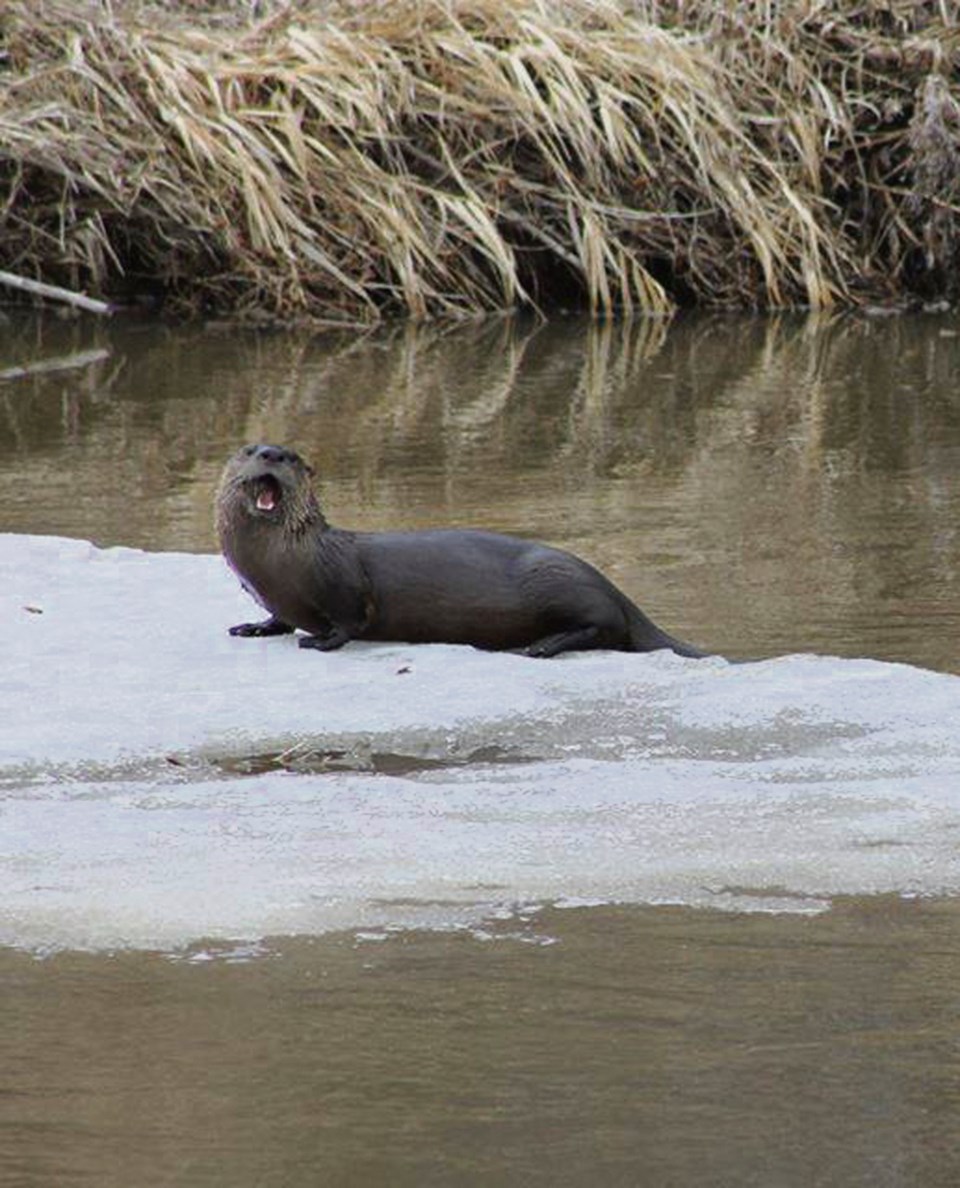When Dean Brooker, manager of the West Souris River Conservation District (WSRCD), shared pictures on Facebook showing river otters frolicking on the melting ice on Pipestone Creek on April 1, he had to reassure readers it wasn’t an April Fools joke.
The photographs were taken by an area resident who spotted the animals while taking a Sunday walk along the creek near Reston. They told Brooker they had also seen them a few years ago in the same general area.
Brooker says another otter sighting was reported this spring by a landowner along the Souris River near Hartney. He isn’t too surprised by these reports as otters were often seen on the creek about 25 years ago. He doesn’t know why they disappeared from the area but says they might have been trapped.
“Back then, there would have been people trapping beavers along the creek so they could have been trapped or they just moved on.”
It is legal to trap otters with a license or permit in Manitoba, but the photographer of the Pipestone Creek otters asked Brooker not to reveal the exact location because they don’t want people scaring them off.
Brooker says it’s more common to see the mammals further north along the Assiniboine River valley near Miniota and Birtle.
As a semi-aquatic species, otters usually stay close to food sources like fish, clams, frogs, mice and other small mammals, which is why it was so surprising when a river otter turned up at the University of Winnipeg two months ago, a good distance from any waterway.
“Otty” developed quite a fan following on social media during his rehabilitation at the Wildlife Haven. Otters are relatively tolerant of human activity and are known for their people-pleasing antics.
“It’s nice to have them around,” says Brooker. “They’re part of the ecosystem. We’re pretty pleased they’re back again.”
River otters are not under threat in Canada and their numbers are considered healthy except in the far north. Possible dangers to the species are loss of habitat and toxins in the aquatic food chain. They can also be unintended victims of beaver traps.




